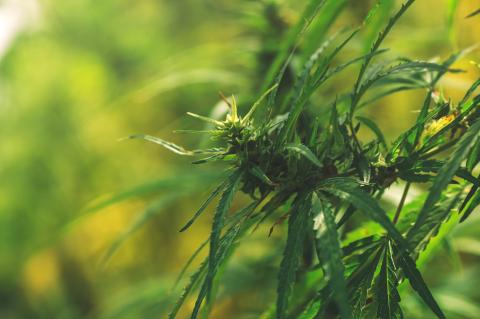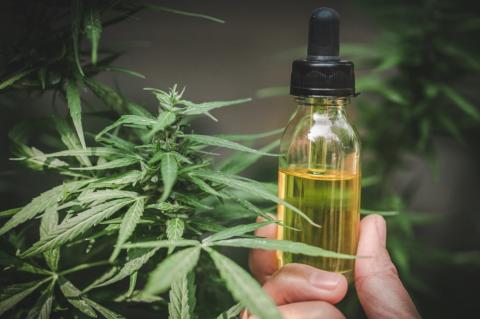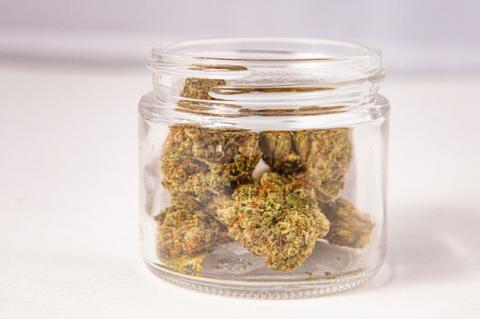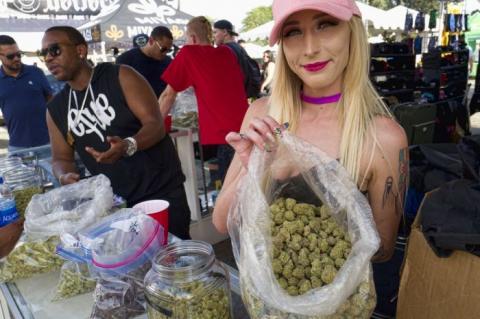Get the top 5 cannabis articles daily
CBD is positively changing people’s perspectives on marijuana
A new survey found that older adults have made the most impressive changes towards marijuana, gravitating towards CBD as a natural way of treating different ailments.
While CBD may not have the same effect as THC, it’s certainly having a huge impact on the way people think about cannabis.
The study, which surveyed 2,000 Americans, was conducted by OnePoll on behalf of CBD brand HempFusion. A whopping 82% of participants said that their opinions on marijuana had evolved in recent years, while 46% said that CBD products, such as CBD oil, were primarily responsible for changing their perspectives on the drug.
The takeaway? America’s changing attitudes prove that many people are outgrowing the anti-drug propaganda that they learned in their youth and embracing medical and recreational marijuana.
As a refresher, both CBD and THC are both derived from cannabis plants. But while THC is psychoactive (mind-altering), CBD is not, which is why many companies prefer to use it as their active ingredient in everything from beauty products to beverages.
“Once people realize two things, they’re much more open to trying CBD,” says Ashley Grace, chief marketing officer at HempFusion. “One – your own body makes cannabinoids as part of what’s called your Endocannabinoid System (ECS). Two – the US Department of Health patented the plant-based cannabinoids found in hemp as ‘antioxidants and neuroprotectants.’ Given this, clearly there might be some value in plant-based cannabinoids as a dietary supplement. And since they don’t get you high – why not give them a try?”
The survey, by way of New York Post, represents the opinions of a broad spectrum of different age groups, reflecting how varied CBD’s target audience is. Younger Americans, who’ve grown up with looser perspectives regarding marijuana laws (and the marijuana plant, in general), are mostly supportive of legal cannabis and are willing to try out new products. Older adults are the ones who have made the most impressive changes, gravitating towards the benefits of CBD as a natural way of treating different ailments.
‘Largest pot recall ever’ shows how legal cannabis rules can add safety
In what appears to be the nation’s biggest pot recall ever, Colorado company Bonsai Cultivation voluntarily moved to take its products off of shelves at 144 retail stores in Colorado. Denver’s Department of Public Health and Environment issued the announcement on Monday.
During a DDPHE investigation, samples of dried marijuana were checked at labs and found to contain potentially unsafe levels of yeast or mold. DDPHE originally opened the investigation leading to the recall after identifying multiple samples that had failed tests from multiple retail store locations.
The recall covers the material — bearing the OPC code 403R-00228 — that came out of three of Bonsai’s cultivation facilities and eleven manufacturers who came into contact with the product through Oct. 14.
The owner of one of the stores mentioned in the recall list told Cannabis Now they have sold Bonsai products in the past, but they didn’t have any product from them at the time of recall. Nevertheless, they found themselves listed because they carried the company’s prerolls in the spring.
“It’s because it was any store that had bought from them since April,” the store owner told Cannabis Now, on the condition of anonymity. “Between that and the outdoor harvest being seeded by hemp, it’s been an interesting Croptober.”
We asked the National Cannabis Industry Association if this was the biggest recall of legal cannabis yet in the post-prohibition era. While Media Director Morgan Fox couldn’t confirm it was the largest, he did say the Colorado recall perfectly exemplifies how cannabis legalization can help keep cannabis consumers safe.
“This is exactly what a regulatory structure is meant for,” Fox said. “Testers caught it, and the single producer responsible is working with regulators to make sure these products are removed from stores and that consumers are warned about it.”
Fox said as far he knew, no one has gotten sick from these products, “and hopefully no one will thanks to this effective implementation of regulatory oversight.” (This stands in obvious contrast with the ongoing vaping crisis, where 26 people have been killed and 1299 sickened from what appear to be unsafe vaporizers bought on the illicit market.)
Fox believes the industry is putting in a solid effort to avoid these kinds of days.
“This is hardly a common occurrence either,” Fox said. “Overall, state regulators and licensed cannabis businesses are doing a great job at keeping potentially dangerous products out of the legal market, though federal descheduling and regulation would help them get even better. None of this control or mechanisms to protect public health exist in the illicit market.”
To help put it in perspective, Fox noted there were nearly 400 food recalls in the U.S. last year.
“I’d say the cannabis industry is doing quite well by comparison,” Fox said, before mentioning that over 206 million eggs from a single supplier were recalled for salmonella in 2018, 12 million pounds of beef from another that same year, “all under what is generally considered to be the safest food regulatory system in the world.”
Bonsai Cultivation bills itself as a state-of-the-art wholesaler of high-end cannabis. According to the company’s website, the management team has over 25 years of experience in the industry.
In July, Bonsai’s Sales Director Brendan McCormick told Westword he believed that state was undervaluing the price per pound of cannabis after the first batch of outdoor, probably light-dep, started hitting the market. Unfortunately, the flowers he was speaking on at the time would have seemed to have been caught up in this week’s recall.
While a lot of Colorado recalls only impact a handful of stores, every now and then there is a big one.
Back in 2015, Denver-based edible manufacturer EpiPure saw 7,700 units of 17 different products recalled. Some of the products tested positive for one or more pesticides banned by the Colorado Department of Agriculture. You can’t legally use things like myclobutanil, avermectin and imidacloprid on marijuana in Colorado, and they definitely can’t be in your finished oil.
We reached out to Bonsai Cultivation for comment, but had not received a response at press time.
Mandatory testing now required for medical marijuana sales in Oklahoma
The content of your weed could be a lot more than just THC.
News 4 went to the labs responsible for testing medical marijuana in Oklahoma and found out some distributors in the industry are skimping on their safety procedures.
Just drive down North May Avenue and you can't look left or right without seeing a medical marijuana dispensary.
Some are even calling it "The Green Mile."
But are the products you're buying safe?
The industry was unregulated in Oklahoma until the Unity Bill went into effect recently, making safety testing at licensed labs mandatory.
"We're talking about $40 a pound," Wendy Hampton, CEO at Express Toxicology Services, said.
Their Edmond facility mostly tests marijuana sent to them by growers and processors.
"This is medicine, and lots of people with compromised immune systems are using this as a true form of medicine," Hampton said.
That's why it'd be dangerous if the products are not tested for everything, such as metals and pesticides.
And according to some labs licensed to test everything, some in the industry are doing the bare minimum.
"The heavy metals, the pesticides, the microtoxins, all can be lethal things if not looked at properly, and that's the one testing that's not going on right now," William Webb said.
Webb owns Quality Cannabis Laboratories in Edmond.
With a limited number of state agents enforcing the new laws, Webb started going to dispensaries himself.
"Out of approximately 55 dispensaries I went to, only one of them had the correct testing, the full panel," Webb said.
Dispensaries should be able to provide you test results.
Labs are required to keep results for two years and allow the Oklahoma Department of Health access to them.




